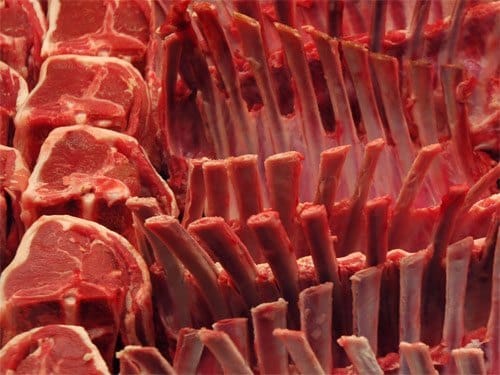According to a new UN report, your meat consumption is killing the planet.
Few things are as personal, as intimate, as food. Early memories, cultural identity, family traditions, and regional norms are all connected to what we eat.
Unless someone is a medical professional whom I’ve chosen to consult, it’s none of their bleeping business what I consume. Part of being a grownup in a free country is that I get to make those decisions for myself.
But the UN has other ideas. Its environment wing – the United Nations Environment Programme (UNEP) – has issued a new report called Our Nutrient World: The challenge to produce more food and energy with less pollution. Here’s a taste of the headlines it has generated:
- Halve meat consumption or kiss the planet goodbye, UN researcher says (backup link here)
- Your meat habits are killing the planet (backup link)
- Halve meat consumption, scientists urge rich world. (backup link)
So who are these scientists? One of the lead authors is Mark Sutton, a UK environmental physicist. He’s been quoted liberally over the past few days pontificating as follows:
Eat meat, but less often – make it special. Portion size is key. Many portions are too big, more than you want to eat. Think about a change of culture that says, ‘I like the taste, but I don’t need so much of it.’
One wonders what’s in the drinking water up there in Scotland that this physicist imagines that anyone should pay the slightest attention to his dietary advice. Should we care what a nutritionist has to say about physics?
But the real issue is the disturbing bigger picture. Having spent the past few years examining another UN body – the Intergovernmental Panel on Climate Change (IPCC) – it’s plain as day that the same modus operandi is at work here.
The UN enlists academics from a variety of countries. It persuades them to write a report that 1) says there’s a crisis and 2) says that UN bodies stand ready to introduce all sorts of red-tape in response to said crisis. The next thing you know, presto! News outlets are running breathless headlines such as the ones above.
In the foreword to this report, Achim Steiner, the head of UNEP, says that “swift and collective action” is necessary and that “our daily decisions” matter (my italics).
The executive summary talks about a “a new global effort,” “inter-governmental” processes, and “international consensus.” Words such as need and must appear frequently in the report. As in:
targets or ranges for optimal consumption will be needed – to help citizens to know where to aim.
and
A more sophisticated set of aspirations must therefore emphasize how the lives of all can be enhanced by allowing the poorest to increase their food and other nutrient consumption, while the richest realise for themselves that it is not in their own interests to over-consume. [both quotes from p. 62 of the PDF, numbered as p. 61]
In other words, the UN wants to intrude into one of the most private corners of your life. After all, scientific experts say this is necessary.
But those experts were hand-picked by the UN. As is the case with the IPCC, the UN feels no obligation to prove that these people have the appropriate expertise. There’s no web page a person can consult in order to examine the CVs of the individuals who wrote this report.
Indeed, the UN thinks we don’t deserve to know their first names. A list of contributors appears at the end of the report. That list contains only initials, surnames, institutions, and countries.

Talk about chutzpah. All sorts of new international measures are supposed to be undertaken because 48 people say so. But the UN makes it difficult to figure out who these people even are.
How many individuals named B. Singh might there be in an organization based in New Delhi? How many people named Y. Zhang might be associated with a Chinese university?
The 25-year-old IPCC is a template, a prototype. The UN is employing that template again and again in an attempt to exert influence over an ever-expanding portion of our daily lives.
And large numbers of educated people – academics, scientists, and experts – appear eager to assist.






